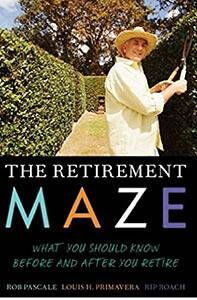Why You Need to Manage Your Retirement Expectations
The problem with being too gleeful or glum about your next stage
After you decide to retire, the last few months on your job is a time to prepare. If you’re looking forward to it, this would be a time to indulge in dreams about freedom from responsibilities and time to pursue new things. On the other hand, if you dread the prospect of leaving your job, you may be worrying about the loss of identity and how you’ll fill all that new free time.
Expectations about what retirement would be like can’t be avoided. But you need to stay grounded. Researchers have found that accurate expectations of what day-to-day life without work will be like are important for retirees to feel comfortable, especially in the first few years of their new life chapter.
Unfortunately, realistic expectations can be hard to come by. Most retirees cannot, before the fact, get an accurate sense of retirement living, since there are so many unknowns. Maybe a few will hit it dead on, but that’s not the case for most people. In a survey my firm conducted of 1,400 retirees, described in my book The Retirement Maze, we found that expectations about retirement can range from wildly positive to wildly negative. Either extreme can make the transition difficult.
Avoiding Disappointments in Retirement
For those who lean too positive, retirement seems like it would be a vast improvement in lifestyle. So when it doesn’t always turn out that way, these retirees can become demoralized. It’s not that pre-retirees live in a fantasy world. Rather, it’s more likely that their expectations are clouded by how they feel while still dealing with the stresses of their jobs.
Take, for example, the issue of money. While working, those planning to retire are pretty sure that their incomes will offer the potential for a good life. But in retirement, a regular paycheck stops, so whatever is spent isn’t automatically replaced. That makes some people feel financially insecure, leading them to cut down on their spending. Then, if they have to deprive themselves too much of things they want, they may come to see retirement as a mistake.
Pre-retirees are also more likely to believe they will be rejuvenated and motivated to take on new challenges. But closer to the truth, their motivation to do a lot of things will decline in retirement. Whether it’s from age, lack of direction, or a lack of a need to accomplish anything right away, or ever, less is likely to get done, not more.
Miscalculating How Much You'll Enjoy Leisure

Pre-retirees may also miscalculate how much they’ll enjoy their leisure. That’s because they lack the proper perspective. For retirees, leisure is their life; for those still working, it’s a diversion from work. Researchers have found that people who relocate to a warmer climate for more recreational facilities are not as happy with the move as they expected to be and those who loved traveling while working did not enjoy taking trips as much in retirement. When they no longer have the stresses of their jobs, there’s nothing to escape from, and no need for diversions. As one of our respondents put it, “When people say they want to retire, what they really want is a long vacation.”
Negative expectations pose a different set of issues.
Those who plan to keep working as long as they can may view retirement as a form of hell — boring, socially isolating and largely without enough interesting things to do. This point of view seems to derive primarily from their current lifestyles: they tend to have fewer non-work interests and less satisfying marriages and they are less socially connected. In other words, they don’t have things to go to if they leave their jobs.
One side effect of negative expectations is demotivation. The negative attitude that accompanies this way of thinking can inhibit us from taking actions because we don’t feel there’s much to be gained. If you go into retirement with low expectations and a negative attitude, you’ll probably end up with exactly the type of retirement you’re expecting.
How to Find Retirement Happiness
With realistic expectations and a grounded perspective, however, you’re less likely to be disappointed in retirement. As a result, you’ll be better able to stay motivated to pursue things that can lead to longer-term happiness.
This isn’t to say that, psychologically speaking, realistic expectations are all you need for an enjoyable retirement. You also have to maintain the right mindset, a belief that you can make your retirement a great experience. This entails being open to trying new things and seeking out new experiences.
The truth is: retirement takes effort. A successful retirement requires that you don’t let your expectations get in the way so you can focus your attention on developing a new lifestyle.
There are mental exercises you can perform before retiring to gain an appreciation of the effort that you’ll need to be successful as a retiree. Begin with an acknowledgement that retirement is not likely to be as fulfilling as a career that offers constant social contact, challenging tasks and an established routine. Then, try to imagine what life without work would be like: day after day with very little structure, direction or challenge.
If you can achieve an accurate mental image, you should see that there will be gaps in your days with nothing to do and you will want to fill them with meaningful activities.

